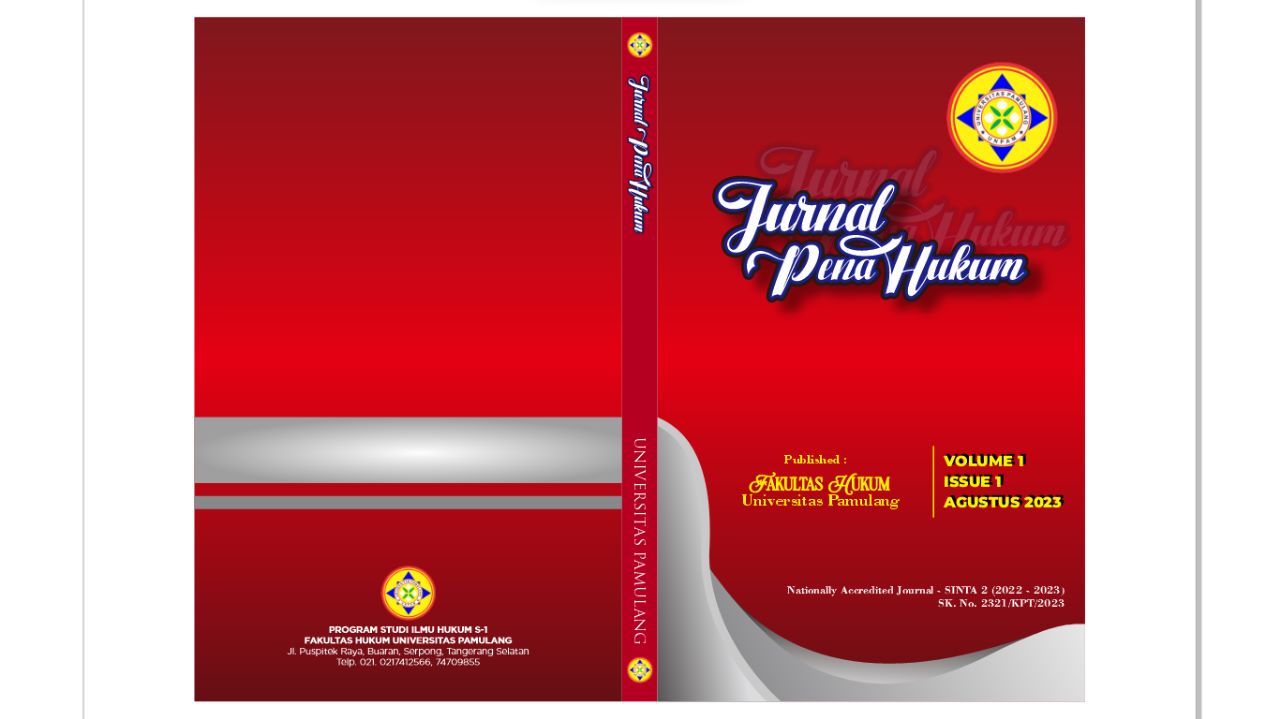KONSTRUKSI GANTI KERUGIAN AKIBAT PUTUSAN LEPAS DARI SEGALA TUNTUTAN HUKUM DALAM HUKUM ACARA PIDANA DI INDONESIA
Abstract
That one of the characteristics of a rule of law is the existence of recognition of human rights, this recognition is not just recognition of fellow human beings as individuals, furthermore there is legal certainty and legal protection of human rights that is attached to him wherever he is. .
Indonesia expressly states in the 1945 Constitution of the Republic of Indonesia Article 1 Paragraph (3) that Indonesia is a constitutional state, so Indonesia also expressly regulates human rights in the Constitution of the Republic of Indonesia of 1945.
Legal protection against violations of human rights must be carried out against various forms of violations of human rights, whether committed by fellow human beings in society or against violations of human rights by those in authority as managers and holders of power over the administration of the state.
The protection for human rights in the Criminal Code (KUHAP) are compensation and rehabilitation for defendants or convicts who have been acquitted or acquitted, as stipulated in Article 95 Paragraph (1) “Suspect, accused or convict has the right to demand compensation for being arrested, detained, prosecuted and tried or subjected to other actions, without reasons based on law or because of a mistake regarding the person or the law applied”, and Article 97 Paragraph (1) “A person has the right to obtain rehabilitation if the court acquitted or released from all lawsuits whose decisions have permanent legal force”.
In this study the author will examine the case related to the alleged crime of trafficking in persons and the crime of exploitation of minors, where the defendant was acquitted of all lawsuits, so that the decision of the panel of judges declaring the defendant acquitted of all lawsuits due to the alleged actions was proven but it is not a crime, the defendant through his attorney made a pretrial submission to request compensation for all legal processes that have been carried out by law enforcement causing harm to the defendant, this is a human right that is justified by the Criminal Procedure Code. However, in the pretrial hearing, the Panel of Judges stated that they rejected the request for compensation. So that the defendant accused of committing a crime does not get justice.
That in this study it will answer and describe the errors in legal considerations made by the panel of judges, where these considerations conflict with legal certainty or the applicable positive legal provisions, so that the panel of judges renders a decision in which the decision rejects the request for compensation. For this reason, the author will analyze juridically and theoretically regarding the decision of the Panel of Judges which rejected the application for compensation.
Downloads
Published
Issue
Section
License
Copyright (c) 2023 Fakultas Hukum Universitas Pamulang

This work is licensed under a Creative Commons Attribution-ShareAlike 4.0 International License.
Penulis yang artikelnya diterbitkan pada Jurnal Pena Hukum (JPH) ini menyetujui persyaratan berikut:
Penulis memiliki hak cipta dan memberikan hak jurnal untuk publikasi pertama dengan karya yang secara simultan dilisensikan di bawah Creative Commons Attribution License yang memungkinkan orang lain untuk berbagi karya dengan pengakuan kepengarangan karya dan publikasi awal dalam jurnal ini.
Penulis dapat mengadakan perjanjian kontrak tambahan yang terpisah untuk distribusi non-eksklusif versi jurnal yang diterbitkan dari karya tersebut (misalnya, mempostingnya ke repositori institusional atau menerbitkannya dalam sebuah buku), dengan pengakuan atas publikasi awalnya di jurnal ini.
Penulis diizinkan dan didorong untuk memposting pekerjaan mereka secara online (mis., Dalam repositori institusional atau di situs web mereka) sebelum dan selama proses pengajuan, karena dapat menyebabkan pertukaran yang produktif, serta kutipan yang lebih awal dan lebih besar dari karya yang diterbitkan. Lihat (The Effect of Open Access).


